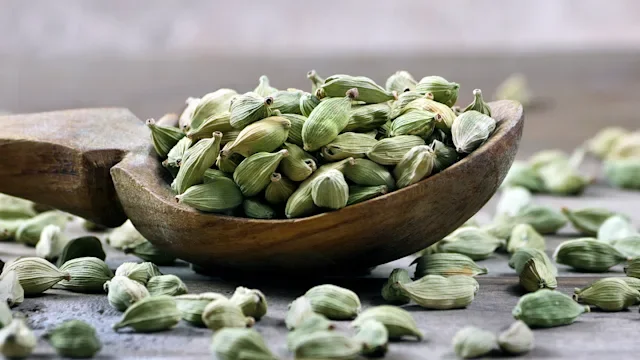Key takeaways:
Mushroom coffee is usually made with ground coffee and extract from medicinal mushrooms. These mushrooms can include lion's mane, chaga, and reishi, among others.
Mushroom coffee contains about half the amount of caffeine as regular coffee. It's generally safe for most people.
Different types of mushrooms have different benefits and health risks. Some mushrooms can interact with medications, so it’s important to consider this before using them.
If coffee is a regular part of your morning routine, you might've heard some hype about mushroom coffee. This is exactly what it sounds like — coffee grounds mixed with mushrooms. Except these aren't the kind of culinary mushrooms you're used to cooking with. They're called functional mushrooms. And they're linked to health benefits, like delivering smooth energy without the jitters.
Here's what you need to know about this popular fungi-infused drink.
What is mushroom coffee?
Mushroom coffee is regular coffee that's mixed with mushroom extract. These aren’t the mushrooms you typically see in a grocery store or on a restaurant menu. Instead, they’re medicinal mushrooms also known as adaptogens. They’re thought to help the body better adapt to stress.
It’s important to note that these aren’t hallucinogenic mushrooms (sometimes called magic mushrooms). They don’t cause any sort of psychedelic effect.
Common types of functional mushrooms include:
Lion's mane
Chaga
Reishi
Turkey tail
Cordyceps
Rhodiola
Shiitake
Mushroom coffee is prepared just like regular coffee:
Brew it.
Add in milk or creamer
Stir it.
Enjoy.
"Mushroom coffee still contains coffee grounds, so the coffee flavor isn't lost," said dietitian Megan Byrd.
What’s the deal with functional mushrooms? Our resident expert on the matter explains what these are and their potential health benefits.
Some mushrooms are adaptogens: But what does this really mean? We explain how these compounds may help with stress and its bodily effects.
The health benefits of coffee: Even if you don’t add the mushrooms, coffee on its own has a number of surprising health benefits.
Some enjoy the earthy flavor. But many people drink mushroom coffee for its health benefits.
What are the potential benefits of mushroom coffee?
There isn't much research on the benefits of mushroom coffee specifically. But plenty of studies highlight the health benefits of its individual ingredients.
It’s high in antioxidants
Mushrooms are high in antioxidants. Coffee on its own is also high in antioxidants. That’s part of the reason it has so many health benefits. But research shows that mushroom coffee made with cordyceps has more antioxidants than regular coffee.
The antioxidants in mushroom coffee are linked to benefits, such as:
Supporting immunity: Antioxidants help the immune system function well, which helps protect you from illness.
Decreasing inflammation: Chronic inflammation is linked to many different diseases. And antioxidants can help calm down that inflammation.
Protecting against free radicals: Free radicals are small molecules that may contribute to disease over time. Antioxidants can help protect you from conditions like cancer, heart disease, and dementia.
It may improve cognition
Certain mushrooms have also been shown to improve brain health. For example, studies show that lion’s mane mushrooms help improve mood. It also boosts cognitive function, which relates to things like memory, executive skills, and movement.
"But this hasn’t been proven in mushroom coffee specifically," Byrd said. "There’s definitely potential for cognitive benefits, but it's not well-studied yet."
In short, we don't have much research that looks at the effects of mushroom coffee specifically. We also need more human research on the benefits of different species of mushrooms.
It’s good for gut health
Mushroom extract contains complex carbs called polysaccharides. "This alone can improve gut health when you drink mushroom coffee," Byrd said.
Mushroom polysaccharides aren't absorbed by the body. Instead, they're fermented in the large intestine. Research shows that this fermentation process helps more beneficial bacteria grow in the gut, which strengthens it and supports digestion.
It has less caffeine
Mushroom coffee contains about half the caffeine of a regular cup of coffee. A cup of Four Sigmatic, a popular brand of mushroom coffee, has about 50 mg of caffeine. Meanwhile, a cup of regular coffee has about 95 mg. Depending on how you look at it, the lower caffeine content can be a pro or con.
You might consider switching to mushroom coffee if you're sensitive to caffeine. "Mushroom coffee is an excellent way to reduce your daily caffeine intake while still enjoying the taste of coffee every day," Byrd said.
Because it's lower in caffeine, mushroom coffee might also help you get better sleep. Caffeine tends to keep people up, especially if they drink it too close to bedtime.
What are the potential side effects of mushroom coffee?
Mushroom coffee is generally safe for most people. But certain groups may be sensitive to mushrooms, caffeine, or both. And so some people may notice side effects. Some of the more common side effects include:
Interactions with certain medications: Some mushrooms, including reishi and chaga, may lower blood pressure and blood sugar. This may be an issue for people on blood pressure or diabetes medications.
Gas and bloat: Mushroom extract contains hard-to-digest carbs. This can increase bloat and gas. This is especially the case in people with existing gastrointestinal (GI) issues like irritable bowel syndrome (IBS) or those who have trouble digesting FODMAPs.
Should some people avoid mushroom coffee?
Mushrooms can alter the way common medications work in your body. So, if you take prescription medication, it's best to talk to your primary care provider before drinking mushroom coffee.
Mushrooms also contain oxalates, which can put you at risk for a certain type of kidney stone. For most people, this isn’t an issue. But people with a history of kidney stones or kidney problems should avoid mushroom coffee.
Pregnant and nursing women should also avoid mushroom coffee. That's because we still don't have enough research on how it affects the mother and baby.
How much mushroom coffee should you drink?
It's generally recommended to drink no more than 2 cups of mushroom coffee per day, Byrd said. Always read your coffee product's packaging for recommendations specific to the brand. Different mushroom coffee brands may have varying caffeine contents.
And, to improve sleep, avoid caffeinated drinks within 8 hours of bedtime.
Can you use powder or supplements instead of mushroom coffee?
"Mushroom powder and supplements will likely give you the same benefits as mushroom coffee," Byrd said.
But different mushrooms contain different antioxidants and compounds, so their effects can vary. It’s always a good idea to do a little research — or talk to a healthcare professional — if you’re considering a mushroom supplement for specific health needs.
The bottom line
Many people are trying mushroom coffee as a way to get a daily dose of functional mushrooms. And there’s promising research on their adaptogenic effects. But more studies are needed to fully understand their risks and benefits.
For now, we know that mushroom coffee is a good source of antioxidants. And it can be a good alternative to regular coffee for people looking to cut back on caffeine. If you're considering adding mushroom coffee (or any supplements) to your morning routine, talk to your primary care provider first.

Why trust our experts?


References
Cha, S., et al. (2024). A review of the effects of mushrooms on mood and neurocognitive health across the lifespan. Neuroscience & Biobehavioral Reviews.
Four Sigmatic. (n.d.). Focus instant coffee multiserve.
MedlinePlus. (2022). Reishi mushroom.
Memorial Sloan Kettering Cancer Center. (2023). Chaga mushroom.
Song, H. (2020). Functional cordyceps coffee containing cordycepin and β-glucan. Preventive Nutrition and Food Science.
Zago, A., et al. (2022). How adaptogens influence cognitive-mental performance: An integrative review. Research, Society and Development.
Zhao, J., et al. (2023). The interaction between mushroom polysaccharides and gut microbiota and their effect on human health: A review. Biology.














